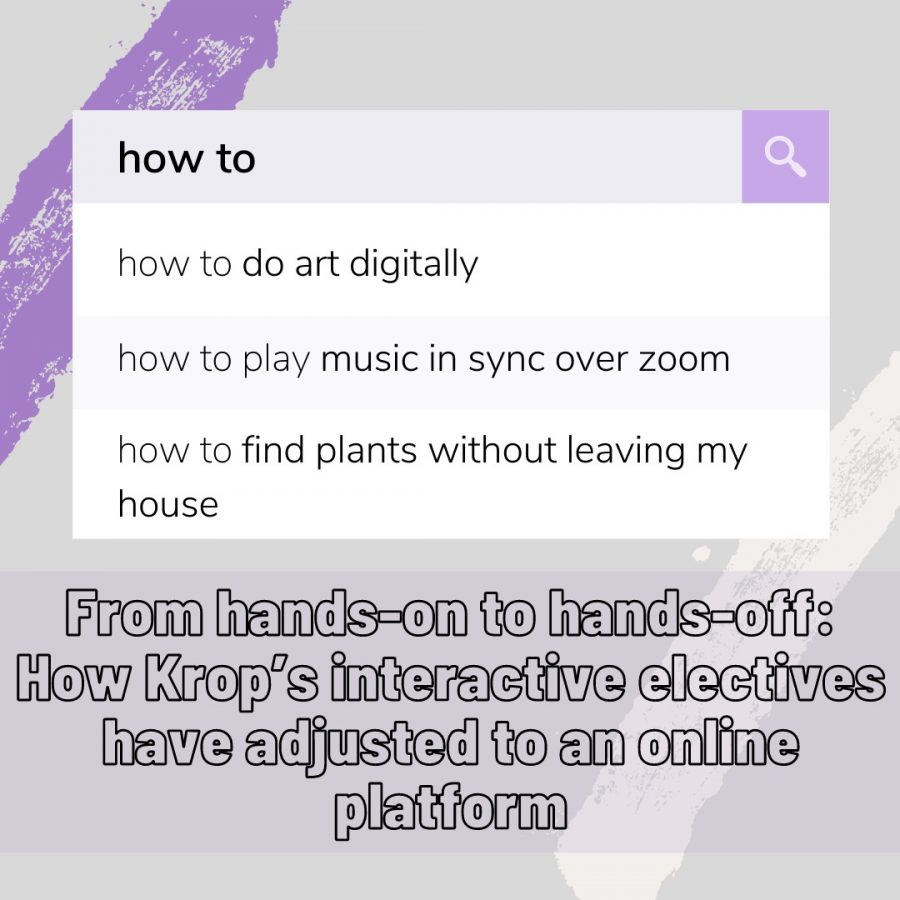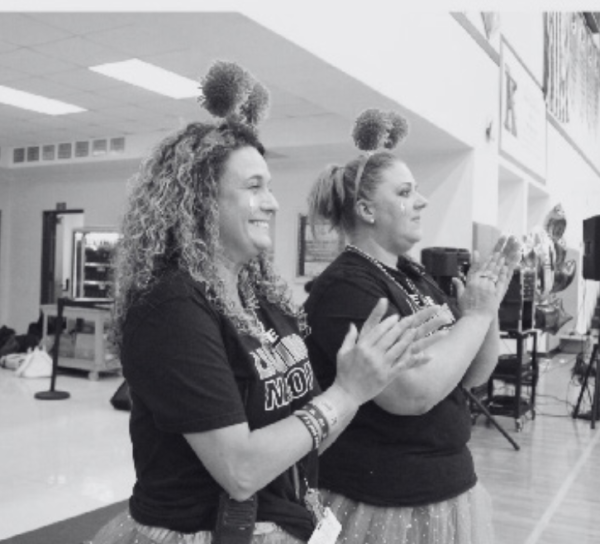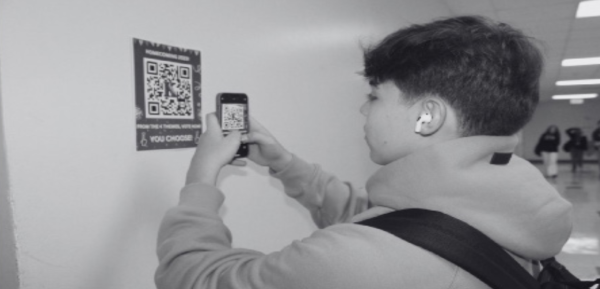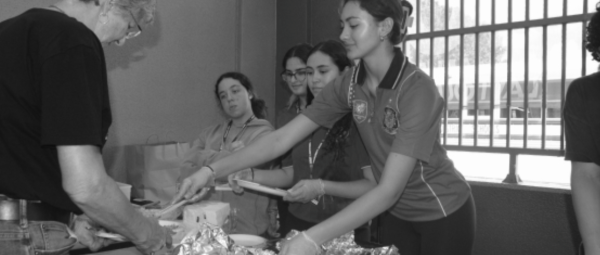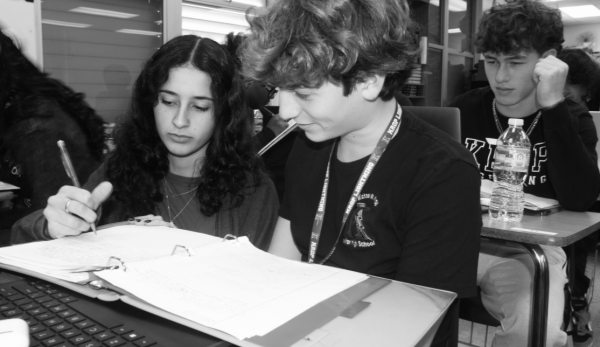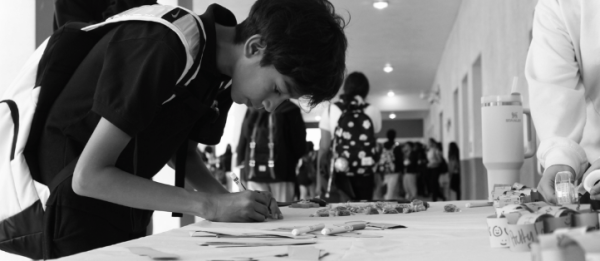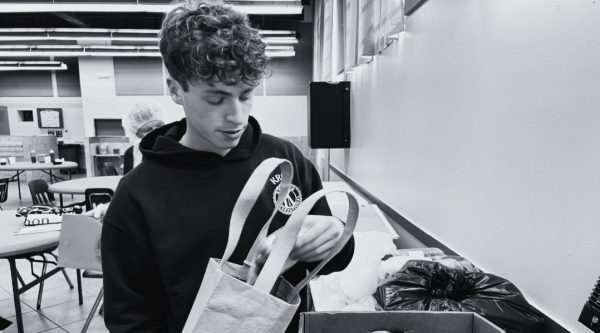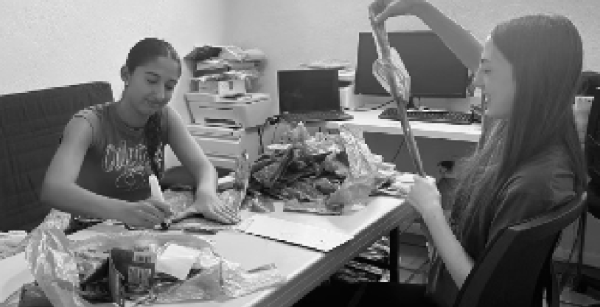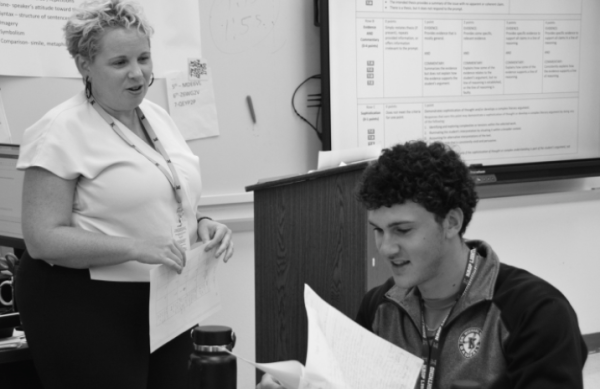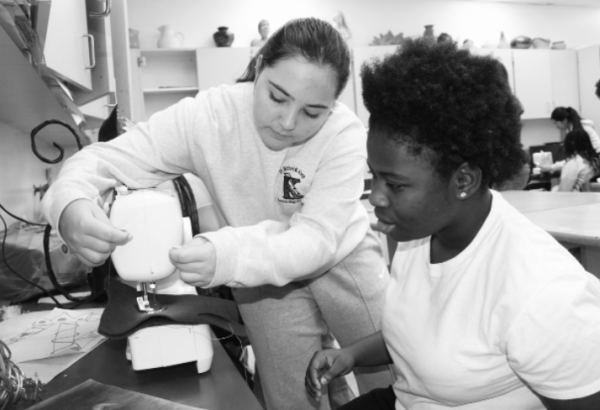From hands-on to hands-off: How Krop’s interactive electives have adjusted to an online platform
While most teachers only have to hit “screen share” to transfer their lectures and powerpoints to remote learning, Krop’s hands-on courses such as Botany, Music and Art have had to wipe-out their traditional lesson plans and return to the drawing board.
The challenges that the pandemic has burdened our teachers with has exposed their commitment to their students’ education. For many students, these electives provide a less rigorous academic schedule and allow them to experiment with recreational interests. However, with the limitations that quarantine has put on in-school learning, these classes have had to adapt. Nevertheless, these teachers and students have prevailed, creatively navigating this new adjustment.
Choir and Orchestra teacher Andres Villa said that not being able to make music together with his online classes is one of his most concerning challenges of the year. The Choir and Orchestra electives are dependent on students having the ability to perform as a unit. Because Zoom is vulnerable to technical difficulties, Villa decided to use a different online platform to conduct class. The course is currently utilizing Flipgrid, an online application that allows students to record videos of their vocal solos or instrumental parts and submit it for evaluation. Moving forward, Villa intends to explore the use of Digital Audio Workshop, which enables users to record and mix self-created audio, as well as tools like Movavi, which allows for virtual performances.
“A lot of the magic behind music and harmony relies heavily on playing, singing and listening to each other, which currently Zoom cannot support,” Villa said.
While most core classes have had to shift to a textbook-based class, Villa is determined to maintain participative elements. He claims that the interactional aspect of Choir and Orchestra is just as or even more important than the use of textbooks, which teach music history and theory concepts.
“I feel like some or most of our magnet Chorus and Orchestra students come to Krop solely to have those performance opportunities where they get to take the stage and shine,” Villa said. “We must preserve that experience and opportunity as best we can.”
Like teachers, students have had to adapt to this method of learning online. Senior band student Lily-Anne Jean-Mary said that online learning has helped decrease her stress. She is more comfortable and focused on her instrument when performing in her house, since there isn’t an audience drawing her attention away from her work. Jean-Mary explained that Band conducts their classes differently than most core-curriculum courses: students pre-record themselves playing their instruments, which is then broadcast over Zoom, easing the confusion that comes from technical difficulties. However, this method has its problems. It has been an obstacle for Jean-Mary to learn particular notes because it is difficult for her teacher to assess her hand placement and give direction.
“In Band you have to play along with somebody,” Jean-Mary said. “Music is all about emotions, which is very difficult to feel through a computer screen.”
Photography teacher Courtney Palmer has experienced a difference in the content that her students are submitting. With the shift to online school, her students are able to take advantage of the resources the Internet has to offer. Palmer describes that this broader range of work demonstrates how her students are employing different resources to meet the class standards while they are quarantined. Moreover, her Creative Photography, 1 and 2 Photojournalism and her AP Photography classes are relying on virtual gallery tours within the Museum of Modern Art exhibitions and its display of art collections. This transition has not only allowed her students to take advantage of different types of art concepts, but has given them a sneak peek into a realistic future in photography.
“The virtual platform does allow for a very holistic lesson in covering all bases of learning,” Palmer said.
Some students have found stress in creating quality pieces given their restrictions. Senior Anastasia Deriy, who takes AP Drawing and 3D Art and Design, said that being confined to her room has affected her motivation and caused her difficulty in finding artistic inspiration.
Another concern is being able to obtain the proper supplies that were previously provided in class for certain assignments. Oil paints, canvases and 18 inch by 24 inch paper are materials that aren’t readily accessible to all virtual students. Some students do not have the ability to go to arts and supplies crafts stores to get the materials needed for their assignments, which may affect their grade.
“I wasn’t able to get the exact paper needed until a couple days before the due date, which gave me less time to actually work on my assignment and draw to my full potential,” Deriy said.
Science teacher Amy Leonard recently introduced a Botany class that analyzes plants and its importance in nature. Previously, the course utilized Krop’s garden, which they no longer have access to. Thus, she’s assigning “field journals,” which is a data collection tool that captivates nature based on the researcher’s observations, so her students can still learn the topics that would’ve been facilitated by the garden.
“If someone lives in an apartment, they can do an urban field journal and document the life around them from a balcony of an apartment or from the parking lot adjacent,” Leonard said. “The point being that nature surrounds us, even if we don’t always notice it.”
Additionally, by having to teach from home, Leonard isn’t able to use essential classroom instruments such as microscopes, plant samples and microscope slides. Instead, she uses Nearpod, an app that allows her to create virtual labs and display similar images to real-life microscopic slides from the Internet. According to Leonard, Nearpod allows her students to complete an electronic version of a scientific investigation.
As unexpected as COVID-19 was, Krop’s teachers adapted to their new circumstances by taking advantage of different sources and applications they didn’t need during in-person learning. Due to this, their students can keep on participating and learning in their interactive-classes.


